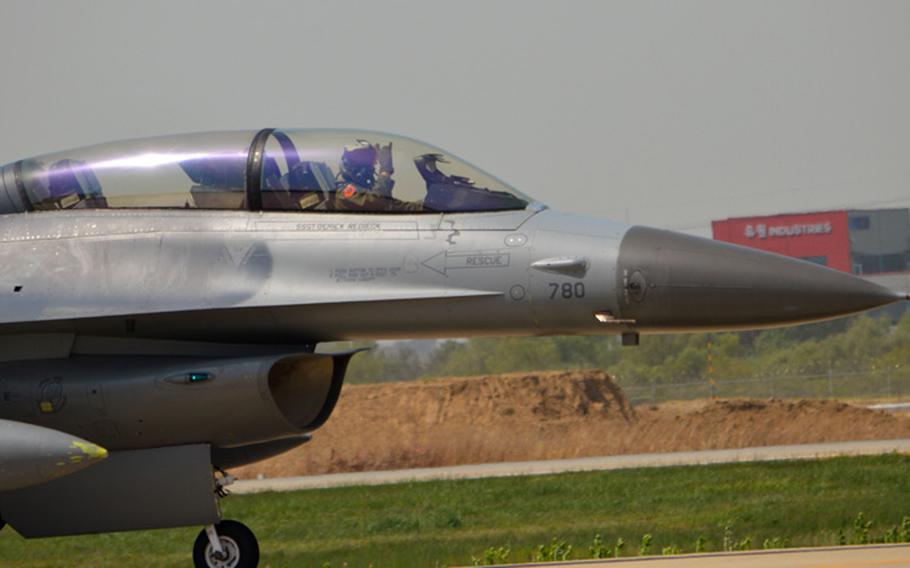
An F-16 pilot gives a friendly signal as he taxis his aircraft down the flight line in preparation for his takeoff at Osan Air Base, South Korea, on May 7, 2014. The pilot is with the 36th Fighter Squadron. (Armando R. Limon/Stars and Stripes)
The Air Force grounded more than half of its F-16D fighter jets after it found structural cracks between the front and rear pilot seats in several aircraft, according to a statement released Tuesday in Washington.
The cracks in the canopy longeron sill, a thin strip of material that fastens to the fuselage, were found in 82 of the Air Force’s 157 F-16D aircraft.
The Air Force ordered an inspection of all F-16Ds after it began finding cracks on the planes during routine post-flight inspections. The service finished its inspections Aug. 18.
The Air Force F-16 Program Office and Lockheed Martin are developing a temporary fix that would allow the damaged aircraft to fly limited hours while they work on a permanent solution, according to the statement.
The United States has also agreed to sell the Iraqi air force 36 F-16 aircraft, along with training. The first two of those aircraft were ceremonially handed over to Iraq at a Fort Worth, Texas, training site in June. The U.S. had planned to deliver the planes to Iraq in the fall, but the siege of Iraq by the Islamic State has delayed those plans, according to recent Pentagon statements.
It remained unclear Tuesday whether the structural problems found in the U.S. versions of the aircraft would have any effect on the Iraqi versions.
In the Pacific, the 36th Fighter Squadron out of Osan Air Base, South Korea, flies both the grounded F-16D and the F-16C variant, according to the base website.
The two-seat, F-16D variant of the F-16 is primarily used for training, according to the Air Force statement. The planes are 24 years old, on average, with more than 5,500 hours of flight time. There are 969 F-16s of all variants in the Air Force, according to service figures.
slavin.erik@stripes.com Twitter: @eslavin_stripes